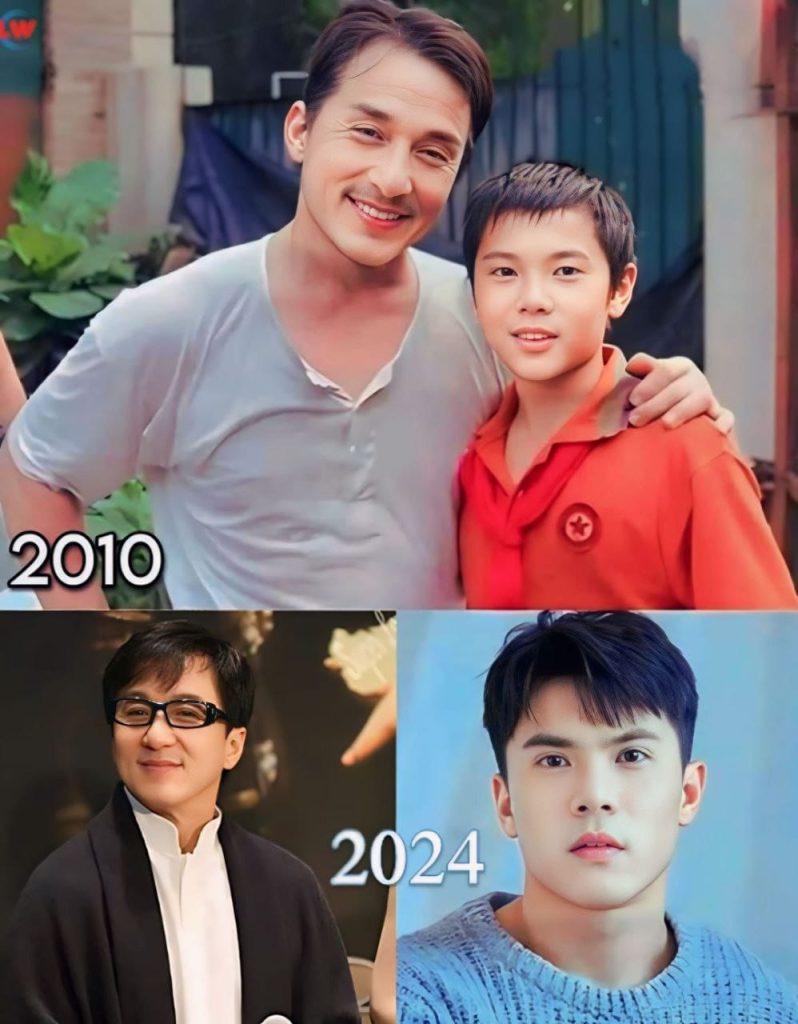Jackie Chan, born Chan Kong-sang on April 7, 1954, in Hong Kong, is one of the most recognized and beloved figures in the entertainment industry. Known for his extraordinary martial arts skills, acrobatic stunts, and infectious charisma, Chan has made an indelible mark on both the action and comedy genres. His career, spanning over six decades, has made him a global ambassador of martial arts cinema, and he remains one of the highest-grossing actors of all time.

Early Life and Training
Jackie Chan’s journey into the world of martial arts and film began in his childhood. Growing up in Hong Kong in a working-class family, Chan’s parents struggled financially, and he was sent to the China Drama Academy, a Peking Opera School, at the age of seven. There, he trained rigorously in traditional Chinese opera, learning martial arts, acrobatics, singing, and acting under the strict guidance of Master Yu Jim-yuen. This intense training laid the foundation for his future success, and Chan would later recall how the discipline of this training shaped his approach to acting and stunts.
Breakthrough in Hong Kong Cinema
After years of training, Chan began his acting career in the 1960s, appearing in small roles in Hong Kong films. However, it was in the early 1970s that he truly rose to prominence. Jackie Chan was initially compared to Bruce Lee, who was already a global martial arts icon, but Chan took a different approach. While Bruce Lee was known for his intense, dramatic style of martial arts, Jackie Chan brought a unique combination of humor, physical comedy, and inventive stunts to the genre.
Chan’s breakthrough came with the 1978 film Snake in the Eagle’s Shadow, where he introduced his signature comedic action style. This was followed by Drunken Master (1978), a film that solidified his place as one of Hong Kong’s most talented and inventive martial artists and actors. Chan’s portrayal of a mischievous young man who learns the ancient art of Drunken Boxing, combined with his impressive fighting skills and comedic timing, captivated audiences and set him apart from other action stars of the time.
International Success and Hollywood Career
Jackie Chan’s fame soon transcended the borders of Hong Kong cinema. In the 1980s and 1990s, he sought to bring his unique brand of martial arts and comedy to a global audience. His breakthrough in Hollywood came with the film Rumble in the Bronx (1995), which was a massive success and introduced Chan to Western audiences. His acrobatic fighting style, coupled with his ability to perform his own stunts, earned him widespread recognition in Hollywood.
In the years that followed, Jackie Chan became a household name internationally, starring in films such as Rush Hour (1998) alongside Chris Tucker, Shanghai Noon (2000) with Owen Wilson, and The Tuxedo (2002). The Rush Hour series, in particular, was a major success, blending action and comedy in a way that appealed to both Western and international audiences. The chemistry between Chan and Tucker made the films a cultural phenomenon and cemented Jackie Chan’s status as one of Hollywood’s top action stars.
Stunts and Innovation
One of Jackie Chan’s most notable contributions to cinema is his innovative approach to stunt work. Unlike many Hollywood stars who use stunt doubles, Chan performed most of his own stunts, often pushing the boundaries of physical danger. His dedication to doing his own stunts has led to numerous injuries over the years, including broken bones, sprained muscles, and concussions. Despite the risks, Chan’s commitment to performing his stunts with precision and creativity has made his action scenes some of the most iconic in film history.
Chan’s ability to blend martial arts with physical comedy and improvisation has also made his fight scenes uniquely entertaining. He often uses everyday objects in his stunts, turning mundane items like ladders, chairs, or even hats into tools for combat, which adds an element of surprise and humor to his action sequences.
Philanthropy and Legacy
Beyond his work in films, Jackie Chan is known for his philanthropy and humanitarian efforts. He has been actively involved in charitable work for many years, supporting causes such as disaster relief, education, children’s welfare, and wildlife protection. In 2004, he was appointed as a UNICEF Goodwill Ambassador, and he has used his fame and fortune to raise awareness and funds for various causes around the world.
In addition to his charitable endeavors, Jackie Chan has left an indelible mark on the global entertainment industry. His influence can be seen in the careers of many young martial artists and actors who cite him as an inspiration. He is often credited with helping to popularize Hong Kong cinema internationally and has influenced the way martial arts and action films are made today.
In 2016, Jackie Chan received an honorary Oscar for his lifetime achievements in film, cementing his legacy as one of the greatest action stars of all time. This recognition came after decades of dedication to both his craft and the film industry, showcasing his long-lasting impact on global cinema.
Conclusion
Jackie Chan’s remarkable career is a testament to his passion, talent, and relentless work ethic. From his early days in Hong Kong cinema to his rise as a global superstar, he has redefined the action genre with his innovative stunts, comedic timing, and martial arts prowess. Beyond his film work, Chan’s contributions to philanthropy and his legacy as a cultural ambassador have made him a beloved figure around the world. Jackie Chan’s influence on cinema, entertainment, and martial arts continues to be felt, and his story will inspire future generations for years to come.


